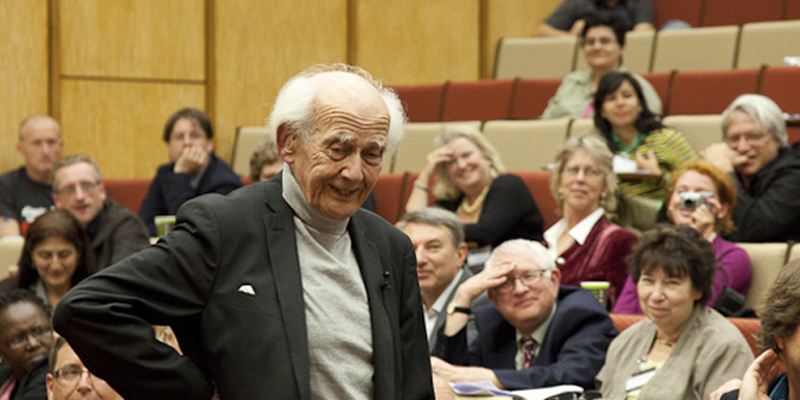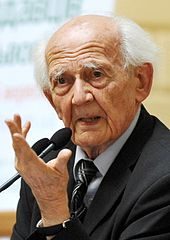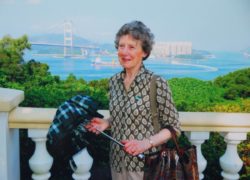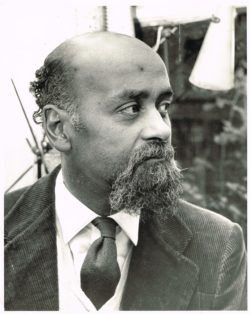History of Sociology and Social Policy at Leeds

The history of sociology at Leeds is far deeper and more nuanced than is reflected in mainstream histories. Paul Bagguley, Tom Campbell and Jack Palmer explain in this article based on the findings of their recent research.

Zigmunt Bauman CC BY 3.0
At the suggestion of our Head of School, Professor S. Sayyid, a small group of us began researching the history of Sociology at Leeds during summer 2017. Little did we know what we were letting ourselves in for! The mainstream histories of Sociology, such as the one by Albert Henry Halsey, focus on the establishment of Departments and Chairs, suggesting that Sociology at Leeds began in 1972 with the appointment of Zygmunt Bauman to Chair the newly-established department of Sociology. However, on consulting the archive in the Brotherton library at Leeds, we quickly discovered that this was seriously misleading.
A course in Sociology was taught as part of the Diploma in Social Organisation and Public Service in 1919-20, and Sociological topics featured in this Diploma from as early as 1909-10. Central to the development of Sociology at Leeds during this period was Arnold N Shimmin (lecturer in Economics and Director of Studies for the Diploma in Social Organisation). Shimmin was appointed Professor of Social Studies around 1945-6 and he produced a typescript ‘Social Science in a Modern University’ that dates from this time and looks like a manifesto for his new Department of Social Studies, formed at this time separately from Economics. It looks like an LSE style reform-driven empiricism very much of its time. One of his first appointments as Lecturer in Social Anthropology in 1948 was Fernando Henriques (co-author of ‘Coal is Our life’). More on Fernando later.
Although the terminology might be different, and there is little reference to the classics, Sociology was obviously thriving within the Economics Faculty at Leeds during the 1920s and 1930s. This is most evident from some of the dissertations written by BA, MA and PhD students at the time: Silman’s PhD on ‘Rationalisation and Scientific Management in Leeds Factory Tailoring’; Bajura’s PhD on ‘A Study of Agricultural Development in the Punjab’; and, perhaps best of all, Rowling’s 1934 BA dissertation on ‘A study of Women’s Employment with Reference to Social and Economic Consequences’. From the 1921-39 list of student dissertations, it is obvious that there were many international students at all levels – there were four Khans, including a Phyllis Khan, in the 1930s – and the curriculum reflected this later in the 1950s and 1960s. This aspect always appears in Shimmin’s vision for Social Studies.
John E Goldthorpe introduced a Sociology of Emerging Societies option in 1963, when there was also an option on Modern China. Also in 1963, 250 candidates were interviewed for selection for the BA Sociology Special Studies stream of the BA in Social Studies. The following year, a properly named BA Hons Sociology was introduced.

Jennifer Platt
Up to 1972, Social Studies included a BA in Sociology (with about 45 undergraduates admitted in 1966), a BA in Politics (only 6 in 1966), a BA in Social Administration (around 12 students), and various combined degrees. Jennifer Platt, who was briefly a research student at Leeds in the early 1960s, remembered it as an established, rather left-wing, department at that time.
The Department of Social Studies was formed in the late 1940s and led by Shimmin until the mid-1950s. He was a key figure in writing the history of the University’s first 50 years, during the mid-1950s. He instigated the ‘Coal is Our Life study of Featherstone,’ funded by the Nuffield Foundation with the grant held by Fernando Henriques. Possibly a product of his Oxford DPhil training, Henriques was arguably the most prolific researcher during this period. The co-authors were Norman Dennis, an ethical socialist who later moved to Newcastle University, and Cliff Slaughter. This is probably the best remembered piece of research from Leeds around this time. Fernando Henriques was Dean of the Faculty of Economics and Social Studies for a time as well.
John Rex was a PhD student at Leeds during this period, and taught a Sociology adult education course over 24 weeks in Middlesbrough to five men and four women in 1951-52. His thesis was published as ‘Key Problems of Sociological Theory’ in 1961, and is still in print, indicating its significance as a bridge between classical and contemporary social theory.
The run-up to the appointment of a Chair of Sociology and the separation of Social Studies into separate Departments of Sociology, Politics and Social Administration began in the mid-1960s. During a Departmental meeting in April 1967, the then Chair of Social Studies, Eugene Grebenik, noted that an urgent priority is to appoint a Chair of Sociology. There had been a lot of turnover of good staff by this stage and Leeds looked like an escalator department, where those who published research, such as the Coal is Our Life group, and emerging theorists like Alan Dawe, went elsewhere.
Conflict between Grebenik and the students - mainly about the formation of a staff-student committee - peaked in 1968. ‘Thoughts of Chairman Grebenik’, a document published by the students, criticised Grebenik’s views on these issues. Another document also critical of his views is ‘Will the Real Social Science Department Please Stand up’, authored by John Heritage, Russ Laikin and Max Farrar. The latter is especially sophisticated, providing an intellectual vision for a teaching and research department for the 1970s, and chimes well with idea for a Chair of Sociology.
During the 1960s and 1970s, Leeds was a major centre of Sociological research and teaching as witnessed by the number of globally significant Sociologists and others who were either students or staff during this time. We cannot claim to have traced them all, but they include individuals familiar to many British sociologists: Max Farrar, Jennifer Platt, John Rex and Alan Warde, for example. Others who have taught in the department and former students who have made significant contributions to the development of Sociology include: Bryan Wilson in the Sociology of Religion; Dennis McQuail in Communication Studies; Alan Dawe in Social Theory, Roland Robertson in studies of globalisation; John Heritage in Ethnomethodology; Tony Coxon in Social Statistics and the Sociology of AIDS; and the Philosopher Alasdair Macintyre.

Fernando Henriques CC Attribution-Share Alike 4.0 International
Amongst the most interesting characters was Fernando Henriques. He was the brother of Pauline Henriques (later Crabbe), the first Black female actor to appear on British TV and first Black woman magistrate, amongst other achievements. Their brother Cyril became Lord Chief Justice of Jamaica. Fernando was born in Jamaica in 1916 and came to London at the age of three. He went to Oxford and became President of the Oxford Union in 1944, receiving his DPhil in 1948. He was appointed lecturer in Social Anthropology at Leeds in 1948 as part of the commitment to comparative Social Science.
During his time at Leeds, Fernando was Dean of the Faculty of Economic and Social Studies – possibly the first Black academic to hold such a role anywhere in the UK. The book The Jippi - Jappa Hat Merchant and His Family: A Jamaican Family in Britain is a history of his family’s migration to the UK; his son, Julian Henriques, is now a Professor at Goldsmiths College. Fernando’s first publication whilst at Leeds was in the American Journal of Sociology in 1949. Based on his Oxford DPhil, the publication is a critique of sociological models of West Indian family forms based on Western ideals. He argues that the family form in Jamaica is a legacy of slavery.
Upon Professor Bauman's arrival, the Sociology curriculum underwent significant revisions, but the importance of international (and indeed historical) comparison remained central to the Sociological imagination fostered in the students of the day. Modules on the Sociology of industrial, non-industrial and Communist societies were mainstays of the department and the Development Studies discipline was for many years housed in the department.
The National Union of Students ‘Why is my Curriculum White’ campaign has raised important questions about the degree to which modern Sociology as a discipline is Eurocentric. Looking into the history of our own department begs us to question whether we, the contemporary practitioners of Sociology, are even more Eurocentric than those who taught in the very same lecture theatres decades earlier. In his 1987 'The Retreat of Sociologists into the Present', Norbert Elias argued that since the end of the Second World War, Sociologists had increasingly retreated from their previous tendency 'to illuminate problems of human societies, including those of their own time with help of wide knowledge of their own societies' past and of earlier phase of other societies.' If Sociology is Eurocentric today, perhaps it is because after 1989 the retreat described by Elias did not abate but accelerated.
We invite past students, staff and collaborators to contact us with their comments on this blog as well as any further memories, information, photographs or documents they may have relating to Sociology at the University of Leeds. Please contact one of us: Paul Bagguley (p.bagguley@leeds.ac.uk), Tom Campbell (t.campbell@leeds.ac.uk) or Jack Palmer (j.palmer@leeds.ac.uk)
A version of this post was originally published as 'The History of Sociology at Leeds' in the BSA’s Network magazine in March 2018.
